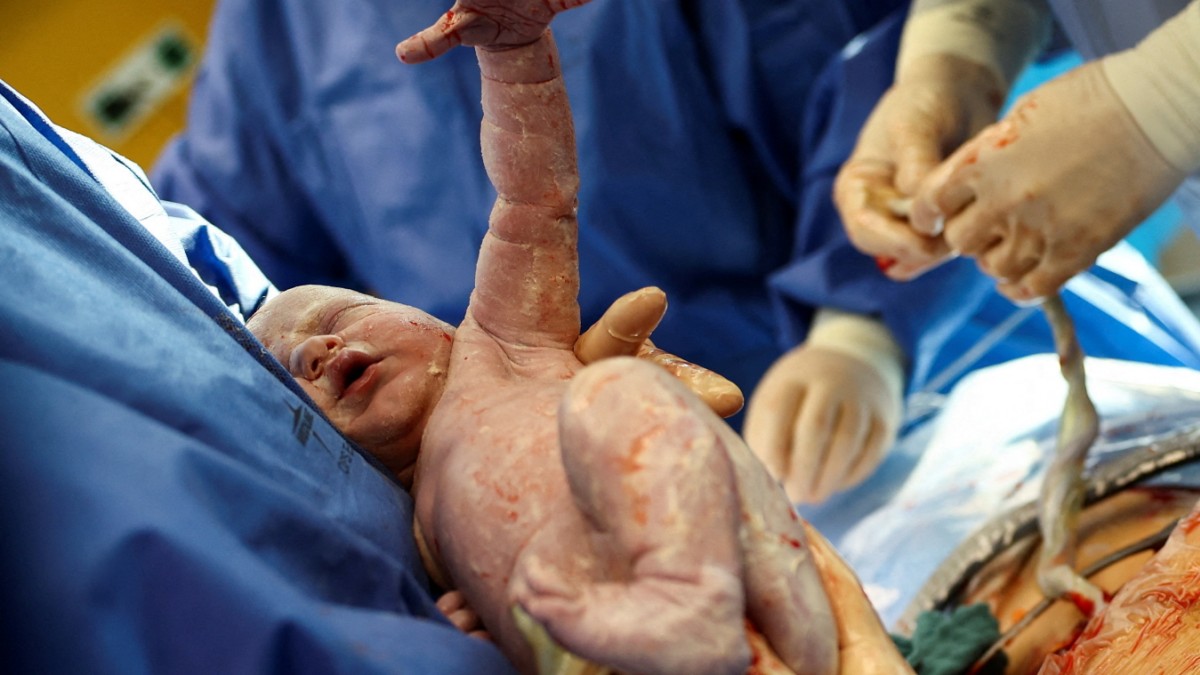Every two minutes, somewhere in the world, a woman dies from complications during pregnancy or childbirth. It was about 287,000 women in 2020. This estimate, presented by the World Health Organization (WHO) and other UN agencies on Thursday, is not just a tragedy for every single family affected. It is also a painful turning point in a success story. Because maternal mortality in particular has fallen significantly in recent decades – not as quickly as experts had hoped, but steadily. Overall, death rates almost halved between 1990 and 2015.
But the development has stagnated since 2016. Globally, the figure remains at around 233 deaths per 100,000 births annually. In 17 countries, maternal mortality even increased again. “No mother should have to fear for her life when she gives birth to a baby,” said Catherine Russell, director of the children’s charity Unicef. This applies all the more since most complications can be treated easily today. In principle, it is avoidable that women die of high blood pressure during pregnancy, bleed to death during childbirth or contract fatal infections during childbirth. Nevertheless, this still happens frequently in large parts of the world.
The world community is currently far from the goal it has set itself
The authors of the current UN report cite the inadequate functioning of health care in many places, which is being additionally burdened by humanitarian and increasingly also climate-related crises, as one of the causes. In several regions there is also a lack of medical equipment, medicines and specialist staff. There is a shortage of 900,000 midwives worldwide. A third of all women cannot even attend four examinations during the phase of pregnancy and the postpartum period.
Another problem identified in the report is that 270 million women do not have access to modern family planning. This increases the risk that women will also become pregnant for whom the burden is too high, especially if there is a lack of adequate care at the same time. Deaths from improperly performed abortions are also counted among the causes of maternal mortality.
Possible effects of the corona pandemic have not yet been evaluated in the report, which will run until 2020. However, the authors do not rule out that the pandemic will prove to be another obstacle to reducing maternal deaths. Because an infection with Sars-CoV-2 during pregnancy increases the mother’s risk of complications.
In part, the current findings reflect developments seen in many health programs. Once the easy-to-achieve successes are in, things can get tough. “It is easier to reduce maternal mortality when levels are high than when they are already low,” the UN agency said.
The new data also shows that the global goal of reducing maternal mortality is at risk. As part of the so-called UN Sustainable Development Goals, fewer than 70 women per 100,000 births should die annually from 2030 onwards. The current value is three times as high.
The differences between the countries are enormous. In Europe, North America, Australia and New Zealand, the global target value has long been undershot. For Germany, for example, the UN statistics show three deaths per 100,000 births. In contrast, in the hardest-hit countries of South Sudan, Chad and Nigeria, deaths per 100,000 births are estimated to be more than 1,000.
Natalia Kanem, director of the United Nations Population Fund (UNFPA), warns in light of these findings that more can and must be done to support every pregnant woman as she needs it. “We have the means, the knowledge and the resources to end preventable maternal deaths. What we need now is the political will.”
